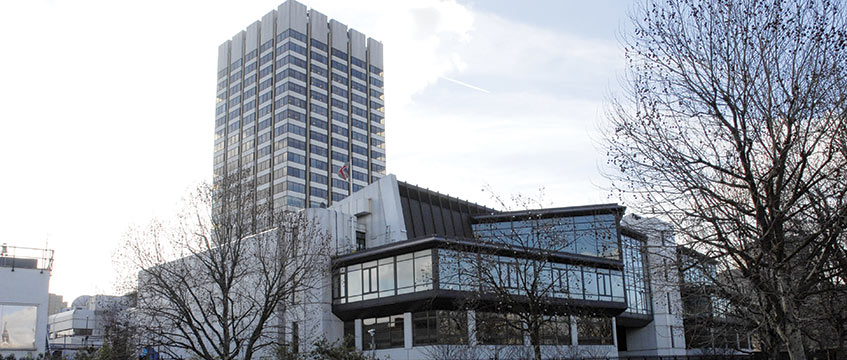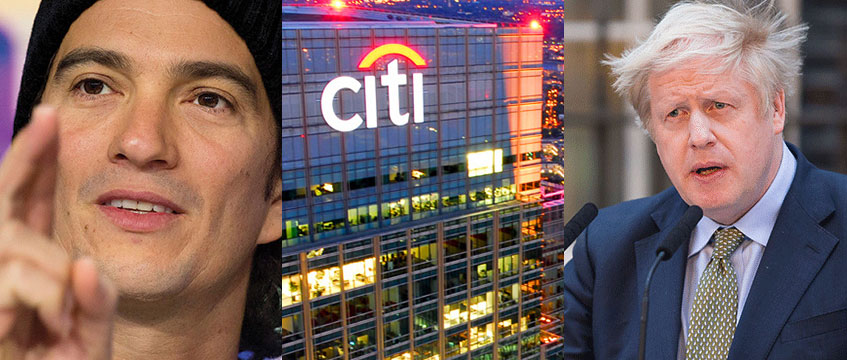WeWork rose and fell, Brexit continued to dampen activity and the Earls Court saga entered a new chapter. EG looks back at the big stories in property during the past year
January
Retail was braced for another tough year from the very start of 2019, and the list of casualties started to mount following a dire December. In a sign of the times, Columbia Threadneedle Investments put a shopping centre in Scotland up for sale with a £1 reserve at auction.
The Financial Conduct Authority gave the green light to IPSX, a stock exchange for individual properties, as founder Anthony Gahan said the first IPOs would arrive before the summer. A year later, the market is still waiting.
In the dealmaking markets, ITV’s South Bank HQ came to market, while local authority investment in property continued to attract attention as it was revealed that Spelthorne Council had spent close to £1bn on real estate.
Despite Brexit uncertainty continuing as parliament rejected then prime minister Theresa May’s agreed deal with the EU, not everyone was perturbed by the year ahead. As he took over from Jeremy Helsby, new Savills chief executive Mark Ridley told EG that difficult markets can be “the best time for the business to grow, because there are more opportunities”.

February
As national data showed affordable new home registrations had hit a 20-year high, London mayor Sadiq Khan explained to EG that, although his targets for affordable housing were tough, he had been “impressed by the willingness of developers to work with us”.
However, there was less good news for Grosvenor, which had its £500m build-to-rent scheme in Bermondsey rejected by Southwark Council on the grounds that it did not include enough affordable housing.
US bank Citi made clear its commitment to London even as Brexit uncertainty continued, striking a £1bn+ deal to buy its Canary Wharf office block, while neighbour the European Medicines Agency lost a landmark case against Canary Wharf Group over whether Brexit should allow it to walk away from its office lease without penalty.
As retail woes continued, Hammerson launched a new committee to oversee a £900m disposal programme. And as the value of its Earls Court project slid again, Capco said it had received several possible offers for the development.

March
Much of 2019 was dominated by developments in the co-working space, and one company seemed to attract more attention, good and bad, than any other. Mary Finnigan, WeWork’s head of real estate transactions for EMEA, told EG of the company’s “obsession” with customers’ experience, as the company continued to snap up space in London and made moves to expand in other UK cities, including making its debut in Birmingham.
The annual MIPIM conference included much talk of Brexit (as you would expect), but also the growing wave of money pouring into real estate and the UK’s ability to continue to attract investment, as five candidates headed into final bids on ITV’s HQ.
And as the quarter drew to a close with yet more bad news from UK retailers, research showed that it had been the worst start to the year on record for investment in UK shopping centres.

April
Plans for a new tourist attraction in London, dubbed the Tulip, were given the green light from the City of London’s planning committee, despite dividing critics (spoiler alert in case you spent the year under a rock – the celebrations were short lived).
In Leeds, Channel 4 announced its choice of new HQ – the redeveloped Majestic, a former dancehall in the city centre. Chief commercial officer Jonathan Allan described the pick as putting the company “at the heart of the city”.
At troubled shopping centre owner intu, chief financial officer Matthew Roberts got the nod to step up to chief executive, telling EG that it was “no secret” that he would have to “address the issues we have with our balance sheet”. Also confirming a change at the top was the Crown Estate, which announced that Dan Labbard would join as chief executive from Lendlease Europe.
As build-to-rent investment hit a record high in the first quarter, Goldman Sachs confirmed a first foray into the market, providing a £118m funding line to back one of Birmingham’s tallest resi towers. And in the US, WeWork filed initial paperwork for its long-awaited IPO.

May
EG’s first London Office Market Analysis of the year showed that, although Brexit had dampened demand during the first quarter, the take-up figure was only down 1% on the 10-year average for the start of the year.
An ongoing conflict between Shaftesbury shareholder Hong Kong billionaire Samuel Tak Lee and the property company’s board rumbled on as news broke that Tak Lee had sent the company a draft legal claim for £10m in damages over what he insisted was an unfair fundraising in 2017.
Sekisui House, Japan’s largest housebuilder, confirmed a deal to enter the UK in a £90m partnership with Urban Splash and Homes England, as Greystar of the US launched a £750m build-to-rent fund targeting the UK. WeWork, meanwhile, announced the formation of a $3bn property acquisition platform, in a tie-up with Ivanhoé Cambridge.
In a notable M&A move, LondonMetric agreed to buy A&J Mucklow for almost £415m. And EG launched its Future Female Leaders programme, offering 12 women from across the built environment industry the chance to undergo a training course to become industry-leading public speakers.

June
June saw the launch of the world’s largest ever private real estate deal, as Blackstone agreed to pay $18.7bn for logistics assets from three of GLP’s US funds. Blackstone Real Estate global co-head Ken Caplan described logistics as “our highest-conviction global investment theme”.
As the race to replace Theresa May got under way, a poll for EG showed Sajid Javid to be the favourite of four candidates for property professionals – with Boris Johnson in last place.
In a big move for the regional property markets, BT appointed JLL to manage the consolidation programme that would slim its 300 offices nationwide down to just 30.
In the dealmaking markets, Wells Fargo agreed to sell Eastdil Secured to Guggenheim and Temasek for a rumoured $400m, while in the UK Unite Group announced talks over a £1.4bn deal to buy Liberty Living. Buyers continued to show interest in Capco’s Earls Court stake, with Canary Wharf kicking off preliminary talks about a purchase.

July
A survey from the British Property Federation found that less than a third of the general public hold a positive view of the real estate sector. BPF chief executive Melanie Leech said the industry had to consider “what more we can do to contribute to building our country’s future”.
Sadiq Khan vetoed the Tulip, arguing that the tower would “not constitute the very highest quality of design required for a tall building in this location”. Orion Capital Managers finally saw off competition to buy BT’s London HQ for £209.5m, as BT itself picked 1 Braham Street in Whitechapel as its next home.
More big M&A came in the form of CBRE’s surprise £267m takeover of Telford Homes. The European Medicines Agency withdrew its appeal against the ruling in the Canary Wharf case after WeWork agreed to sublet its London office.
At Landsec, Rob Noel said he would step down as chief executive in 2020. Later in the year, it was announced that he would be replaced by St Modwen’s Mark Allan.

August
EG’s Q2 LOMA report showed a London office market in which investment and take-up were dropping year-on-year, but some large deals and record rents offered a silver lining.
US build-to-rent operator Cortland made a big statement of intent in the UK with its purchase of property management business LIV Group, and president for Europe Paul Wrights told EG that the goal was to manage 30,000 homes in the UK.
In an oft-heard refrain, retailers made an impassioned call for business rates reform, asking the chancellor to put this issue at “the heart” of the government’s economic offering.
After more than two decades in the role, Sir George Iacobescu announced that he would step aside from his role as chief executive of Canary Wharf Group, with Shobi Khan, chief operating officer of Brookfield-owned General Growth Properties, taking over.
WeWork launched its long-awaited IPO with a 220-page document shedding new light on its balance sheet and business plans. Property professionals and investors were puzzled by what they saw, and the problems were only just beginning.

September
Twenty-three property owners with more than £300bn in assets under management signed up to the Better Buildings Partnership’s Members Climate Commitment, agreeing to publish their net zero carbon pathways during the coming year.
In a mammoth deal, Blackstone closed the world’s largest ever real estate fund at $20.5bn. After a decade working for Birmingham City Council, Waheed Nazir, its director for inclusive growth, announced that he would leave at the end of the year. He told EG: “The opportunity to shape a city of the scale of Birmingham and the city you were born in is quite rare”.
An EG investigation found that over the past two decades, more than £1bn of London homes had been built and marketed that fail to meet national minimum space standards – half of those in the past five years. Meanwhile, Grosvenor went back to the drawing board on its Bermondsey scheme, upping the amount of affordable housing.
And it was quite a month for WeWork, which announced several governance changes amid criticism from potential investors in its listing, then delayed the IPO, then said co-founder and chief executive Adam Neumann was stepping down, then pulled the listing entirely.

October
As WeWork wobbled, backer SoftBank said it would “double down” on its support of the beleaguered company, offering it a $9.5bn rescue financing as cash started to run out in the aftermath of the failed IPO.
British Land got the green light for its Canada Water masterplan, despite objections from neighbouring Canary Wharf, paving the way for a sprawling new mixed-use development.
As the final figures for September came in, analysis from Calastone revealed that open-ended UK property funds had suffered an unprecedented run of withdrawals over the previous 12 months, with £2.7bn pulled by investors.
As the Earls Court saga continued, Delancey and Candy Ventures were both said to be eyeing the development, as Hammersmith & Fulham Council started mapping out plans for a £650m acquisition of the site, possibly through a compulsory purchase order. And on the topic of CPOs, an EG investigation revealed that HS2 had made late payments on 40% of such deals.

November
EG’s latest LOMA report was yet more proof of a subdued market, although notable deals could still be found as the year wound down – ITV’s sale of its London HQ finally went through, with Mitsubishi Estate London landing the £145.6m deal.
Of even greater note in the dealmaking world, Delancey and APG agreed a £425m deal for Capco’s stake in Earls Court, ushering in a new chapter in the development’s story.
Stephen Hubbard, chairman of CBRE UK, announced his retirement after 40 years in the business, telling EG’s Samantha McClary that his biggest lesson had been to “keep ahead of the trends and spot trends that were coming up”.
IPSX’s new management team said the exchange had more than £6bn worth of IPOs in the pipeline, waiting for market certainty following the recently announced General Election.
The Tories, for their part on the campaign trail, promised to lift the “overall burden” of business rates if they won. The Lib Dems suggested doing away with rates altogether. Few property players seemed impressed with any of the pitches, however.
And in a landmark survey on mental health and the property industry, EG found that 25% of respondents had considered taking their own life. The survey was part of a special edition of EG encouraging the industry to do more to support the mental health of the workforce.

December
Market jitters ahead of the General Election took a toll on M&G, which was forced to suspend trading in its £2.5bn Property Portfolio fund after suffering a rush of redemptions. The move sparked concerns that more funds could soon follow suit.
Hammerson hoisted a “for sale” sign over its retail park portfolio, tasking investment bank Morgan Stanley with touting the assets with a £400m price tag and leaving agents out of the plans.
But the month’s news was dominated by the General Election. As the vote neared, property dealmakers saw buyers and sellers increasingly worried about what a win for Jeremy Corbyn’s Labour Party would mean for real estate, hence there was something of a sigh of relief when Boris Johnson and the Conservatives ultimately triumphed.
As the BPF’s Melanie Leech said: “Our country faces huge challenges that the property industry is uniquely placed to help tackle… We hope the prime minister will listen and grasp the opportunity with both hands.”












